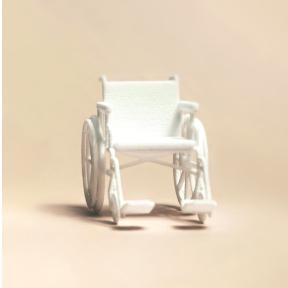Navigating medication and pharmacies in Germany can feel overwhelming, even when you know exactly what you need!
That’s because things work differently here: pharmacies (called Apotheken; not to be confused with drugstores) are highly regulated, and even common medications like ibuprofen or antihistamines could require a prescription.
Whether you’re managing a chronic condition, recovering from an illness, or just trying to find cold medicine, this post will help you understand how the system works.
In this guide, you’ll learn:
- How pharmacies work in Germany
- What medications require a prescription, and what you can buy over the counter
- How to get and fill a prescription step-by-step
- What medicines public and private health insurance will (and won’t) reimburse
- What to do if you lose a prescription or need medicine while traveling
- And how to find a pharmacy, even on Sundays, late at night, or during bank holidays.
Let’s start.
What is an Apotheke?
In Germany, a pharmacy is called an Apotheke. This title is legally protected: only licensed pharmacies that meet strict national standards can use it. Germany’s Federal Institute for Drugs and Medical Devices (BfArM) oversees these standards.
Each Apotheke must have a licensed pharmacist (Apotheker) on site during business hours. They do more than just hand over medications: they provide expert advice, check for drug interactions, and help guide your treatment.
At the entrance, you’ll spot an Apotheke with its distinctive red “A” sign.
How Apotheken are different from pharmacies abroad
German pharmacies are healthcare-focused. Unlike large chains in the US or the UK (like CVS or Boots), they don’t sell snacks, cosmetics, or groceries. Instead, they emphasize personal care, safe medication use, and clinical accuracy.
A few things you should know:
- No self-service for prescriptions: You can’t grab medication from a shelf. A pharmacist must dispense prescription drugs.
- Counseling is standard: Pharmacists are legally required to advise you on all prescriptions.
- Independent ownership: Chains don’t exist—individual pharmacists, not corporations, own pharmacies.
Germany’s Pharmacy Law (Apothekengesetz) prevents corporate ownership or vertical integration (e.g., drugmakers owning pharmacies).
One pharmacist can operate a main pharmacy and up to three branches.
No more.
This allows most pharmacies to offer high-quality, personalized care while avoiding conflicts of interest.
Prescription vs. Over-the-counter medication
In Germany, medication is tightly regulated to protect patients and ensure treatments are used appropriately. Knowing what requires a prescription (and what doesn’t) can help you make informed choices and avoid surprises at the pharmacy.
What medicines require a prescription?
Germany’s Medicinal Products Prescription Ordinance (AMVV) outlines which drugs must be prescribed by a doctor.
These usually include:
- Antibiotics: to prevent misuse and resistance.
- Mental health medications: e.g., antidepressants, mood stabilizers, and antipsychotics.
- Controlled substances: e.g., opioids, ADHD medications, and sedatives.
- Hormonal treatments: e.g., birth control pills and hormone therapies.
- Heart and metabolic drugs: e.g., insulin or blood pressure meds.
Germany is stricter than many countries. For example, ibuprofen over 400 mg, codeine-based cough syrups, and some antihistamines require a prescription, even if they don’t in the U.S. or UK.
What medicines are available over the counter?
You can buy many medications without a prescription, including:
- Mild painkillers (≤400 mg ibuprofen, paracetamol, aspirin)
- Cold and flu relief
- Allergy medicines like loratadine
- Antifungal and wound care products
- Antacids and digestive supplements
- Emergency contraception (like the “morning-after pill”) is available without a prescription, but requires a consultation with a pharmacist who will ask safety-related questions.
However, doses and pack sizes for OTC medication are limited. Stronger versions or larger boxes must be prescribed. Only licensed pharmacies (Apotheken) sell medications. Drugstore chains like DM or Rossmann carry only supplements and skincare, not actual drugs.
Prices for OTC items aren’t regulated, so it’s worth comparing online platforms like medizinfuchs.de or apomio.de for better deals or finding a reference price.
Homeopathy and herbal remedies
Widely used in Germany, homeopathic and herbal products are legally available but don’t require the same scientific proof as standard medicines.
They’re labeled accordingly and mostly not covered by public insurance, though some private plans might reimburse them if prescribed.
Still, you should be able to get most over-the-counter.
How to get a prescription in Germany: Step by step
In Germany, getting a prescription is usually straightforward, but the process may differ slightly depending on your insurance status and the type of medication.
1. Visit a doctor
Start by seeing a general practitioner (Hausarzt) or a medical specialist. After assessing your condition, the doctor decides whether medication is necessary.
2. Receive your prescription
As of January 1, 2024, those with public health insurance will receive prescriptions electronically via the eRezept system. You’ll either get:
- A digital QR code in the official Gematik eRezept app, or
- A printed QR code, if you prefer a paper format.
Physical (paper) prescriptions are still used in some cases:
- If you have private insurance
- For over-the-counter or non-covered medications
- If you don’t have a German electronic health card (eGK)
- For controlled substances, which require stricter documentation
3. Go to a pharmacy
Bring your eRezept or paper prescription to a licensed pharmacy (Apotheke), where the pharmacist will fill your order and explain how to take the medication.
You can also use online pharmacies, just upload or scan your QR code.
4. Helpful tips for getting and using prescriptions
- Know the phrase: “Ich habe ein Rezept von meinem Arzt” (“I have a prescription from my doctor”).
- Carry your health insurance card and a valid photo ID.
- Ask your doctor or pharmacist to explain dosage instructions in English.
- Telemedicine platforms like TeleClinic, ZAVA, or Doktor.de are useful for minor issues or repeat prescriptions. However, they follow the strict rules, and not all medications, especially controlled substances, can be prescribed online.
What to do if you lose your prescription
Losing your prescription can be inconvenient, but it’s manageable.
First things first: Pharmacies cannot dispense medication without a valid prescription form.
In some cases, pharmacists may contact the issuing doctor to verify the prescription, especially for regular patients or urgent cases, but this isn’t guaranteed.
If verification isn’t possible, you must revisit your doctor to get a replacement. Alternatively, you can use a telemedicine platform (e.g., TeleClinic) to speed up the process.
German health insurance coverage for medicine
The amount you pay and what gets reimbursed can vary significantly depending on whether you have public or private health insurance.
Here’s a breakdown to help you understand how it works.
Costs and reimbursement with public health insurance
If you’re insured through Germany’s public health insurance system, the medication cost is usually partially covered, but you’ll typically need to make a co-payment.
The typical co-payments are:
- 10% of the drug’s price, with a cap of €5 to €10 per prescription
- Children under 18 are exempted
There’s a cap on how much you’ll pay out-of-pocket for medication to prevent excessive costs. This cap is generally 2% of your gross income, or 1% for those with chronic illnesses.
It’s important to note that this applies only to medically necessary medications. Over-the-counter medications, which don’t require a prescription, are usually not covered by public insurance, and you’ll need to pay yourself. However, your pharmacist may be able to suggest alternative medications that are covered.
The G-BA (Gemeinsamer Bundesausschuss) website provides specific information about whether a medication is reimbursable under public health insurance.
Pharmacies process reimbursement digitally using your Gesundheitskarte (electronic health card). When you hand over your card, the pharmacy directly bills your insurer and tells you the co-pay amount, if any. You don’t need to fill out forms or handle reimbursement paperwork for standard prescriptions.
Costs and reimbursement with private health insurance
With private health insurance, you typically get broader coverage for medications, including access to newer or specialized treatments. However, the exact details of what’s covered depend on the terms of your plan.
For example, at Feather, here’s how medication coverage works:
- Standard and Plus plans: 80% of medication costs are covered up to €2,000 per year. After that, 100% coverage is provided for additional costs. For generic medications, 100% coverage is available from the start.
- Premium plan: Offers 100% coverage for both generic and non-generic medications.
While coverage with private health insurance can vary, the general structure is similar. If you’re unsure whether a specific medication is covered, it’s always a good idea to contact your insurer for confirmation or pre-approval.
In any case, you’ll have to pay for the medicines yourself, and ask to get reimbursed by uploading your receipts in your company’s claim portal.
Bringing medication from abroad
If you’re traveling to or relocating to Germany, you can bring medication with you, but strict rules apply.
According to German Customs (Zoll):
- You can carry a 3-month personal supply.
- The medication must be for personal use only.
- If it’s prescription-only in Germany, you must carry a valid prescription.
Medications containing controlled substances (like Adderall (amphetamine) or certain opioid painkillers) may be banned or restricted. Possession without prior authorization could lead to seizure and/or legal issues.
Even if the drug is legal in your home country, it may be classified differently in Germany.
Refer to the BfArM (Federal Institute for Drugs and Medical Devices) to check legality. Alternatively, visit your local German embassy or consulate website for country-specific guidance.
In any case, remember these best practices:
- Carry a doctor’s note stating the medical necessity of your medication.
- Bring a translated prescription (in German or English).
- Keep medications in original packaging with clear labels.
How to find a pharmacy near you
Using apps and Google Maps
These tools will help you find pharmacies in your area:
- Apotheken.de: The official pharmacy directory. Search by location and filter for features like emergency service or e-prescription support.
- Apothekennotdienst: Lists pharmacies providing Notdienst (emergency service) during nights, Sundays, and holidays.
- Jameda.de: A healthcare provider directory that includes pharmacies with user reviews and service details.
- Google Maps: Also useful, but remember that opening hours are not always accurate, especially on weekends or holidays.
When are pharmacies open?
Standard opening hours for pharmacies are:
- Monday to Saturday: 9:00 – 18:30
- Closed on Sundays and public holidays
However, hours can vary by location. Some urban pharmacies open earlier or close later, while rural ones could take extended lunch breaks.
What to do if a pharmacy is closed
German law requires pharmacies to participate in a rotating Notdienst (emergency duty) system to ensure access when needed.
At least one pharmacy in every area is:
- Open overnight, on Sundays, or holidays
- Marked as “Notdienst Apotheke” in search apps or on physical notices
You can find the nearest on-duty pharmacy using:
- Aponet Notdienst Finder
- Local pharmacy windows: most display a printed list of emergency locations
Note that:
- A small service fee (around €2.50) is added for emergency pharmacy usage.
- Only urgent medications will be dispensed; you won’t get full retail service.
- The doors might be locked, or the pharmacy might look closed. You could have to ring a bell and wait.
It’s also important to understand that pharmacists are not emergency responders. If you’re experiencing a health crisis, a pharmacy may be unable (or not allowed) to help.
Instead, call [116 117](tel:116 117) for the on-call medical service. This line connects you to doctors available for urgent, non-life-threatening care.
For true emergencies, think chest pain, seizures, or severe injuries, call 112, the EU-wide emergency number.
Learn more about emergency services in Germany.
Additional services offered by German pharmacies
German pharmacies are increasingly becoming local health hubs, providing medication, valuable health services, and advice.
Here are just a few examples of what services German pharmacies offer:
Medication counseling and advice
In Germany, counseling is not just a courtesy. It’s a legal requirement for many prescriptions.
Pharmacists are expected to:
- Check for drug interactions between your new and existing medications.
- Explain how to take the medication properly, especially for first-time users.
- Offer advice on side effects, storage, or alternatives if there’s an issue.
These services are included in the price of your medication, so take full advantage of them. Don’t feel bad for asking “too many questions” or not speaking German. Even if they don’t speak English, they are mandated to help you understand your prescription.
Preventive health services (like vaccinations and tests)
As of 2022, German pharmacies gained expanded authority to provide various clinical services.
Many pharmacies offer:
- COVID-19 vaccinations
- Flu shots
- Blood pressure monitoring
- Cholesterol testing
- HIV self-test kits
- Diabetes risk screening
Some services, like vaccinations (especially seasonal vaccines), may be available on a walk-in basis, while others might require an appointment.
Learn more about vaccination in Germany.
Pharmacies vs. Drugstores: What’s the difference?
In Germany, pharmacies (Apotheken) and drugstores (Drogerien) have very different purposes (something that often surprises expats).
Pharmacies are licensed healthcare providers. They’re the only places where you can get:
- Prescription medications
- Strong over-the-counter (OTC) drugs (e.g., ibuprofen over 400 mg)
- Regulated treatments or advice from a pharmacist
You should go to a pharmacy if your health concern requires a doctor’s note, dosage guidance, or clinical oversight.
Drugstores, like DM, Rossmann, and Müller, don’t sell prescription meds. Instead, they focus on personal care and wellness products. You’ll find:
- Basic supplements and vitamins
- Herbal teas and homeopathic remedies
- Mild painkillers (like low dosage paracetamol)
- First-aid supplies
- Toiletries, cosmetics, and household items
There’s some overlap, especially for items like wound cream or magnesium, and drugstores are often cheaper for non-medical essentials.
Quick rule of thumb: If it impacts your health significantly or requires medical supervision, go to a pharmacy. A drugstore will do the trick for everything else and save you a few euros.
Conclusion
Getting medication in Germany doesn’t have to be confusing.
It becomes much easier to navigate once you understand how pharmacies, prescriptions, and insurance coverage fit together.
Now that you know the rules, your next step might be to find a nearby pharmacy or check your insurance plan for what’s covered.
If you’re looking for health insurance that makes everything health-related go smoother, we can help.
Find the best health insurance for you
And sign up online in minutes
Frequently asked questions
Can I order prescription medication online in Germany?
Can I get my foreign prescription filled at a German pharmacy?
How long is a prescription valid in Germany?
Can pharmacists substitute medications if my prescribed one is not available?
How do I get a prescription for ongoing medication when I first move to Germany?
Don't take our word for it
Quality service. Rare in Germany.
“After my claim, Chris guided me through everything. Super helpful and responsive.”
Madalina
2 years of amazing service
“Justina makes me feel like her only customer. Fast, clear, always helpful.”
Funto
Made my life 100x easier
“Best support I’ve ever had. Clear answers, fast help, incredibly kind team.”
HW





